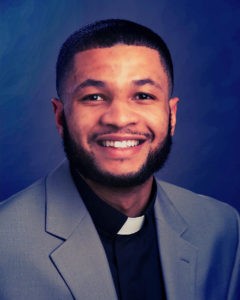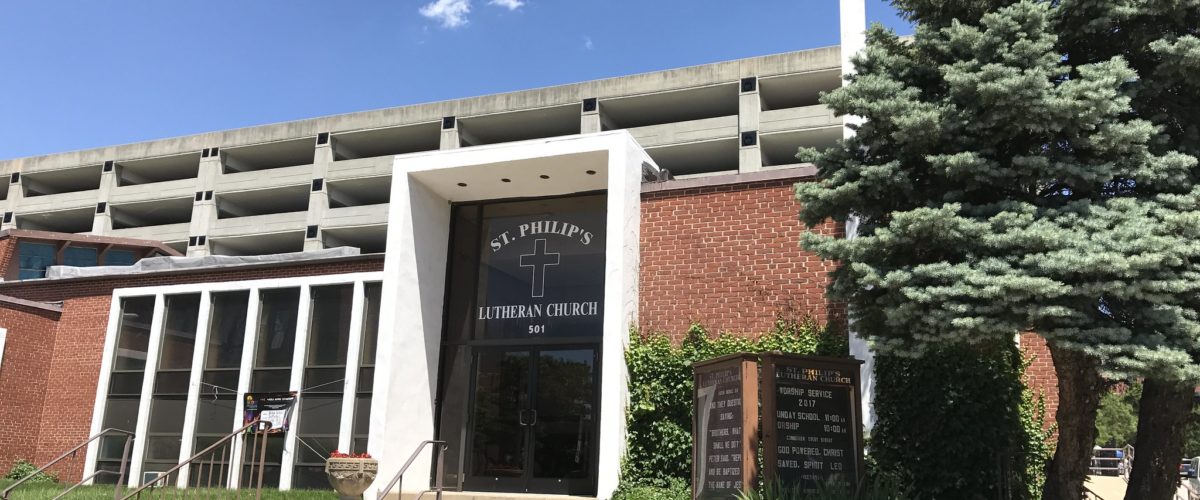Louis R. Tillman IV has been up to a lot in just a few short years of ministry, including championing social and racial justice causes and helping guide the poor and hungry through the COVID-19 pandemic.

Louis R. Tillman
And being a Black Lutheran who grew up in the South only adds to the luster of an ever-expanding resume. But he sees it simply as ministry.
“I’m a realist by faith,” said Tillman, senior pastor of historic St. Philip’s Evangelical Lutheran Church in East Baltimore, Md.
Tillman said he also is a believer in ecumenical partnerships, routinely working with Baptist, Jewish and other groups to foster dialogue on social justice issues and to provide personal protective equipment to assist inner-city residents battling the coronavirus outbreak.
He also has a passion for climate change concerns and how they translate into environmental racism and environmental violence against inner-city populations.
“When we go to heaven, God is not going to ask if you’re Lutheran or if you’re Baptist. He’s going to ask, ‘Did you follow my Son’s teaching?’”
All of that plus ongoing military service — and he hasn’t even turned 30 yet.
Baptist News Global spoke with Tillman about his career in ministry and how he finds the time, inspiration and energy for the wide-ranging work he does.
You have bachelor’s degrees in finance and public relations and a master of divinity with dual emphases in urban studies and African descent ministries. You serve as an Air Force Reserve chaplain. And until recently you were the youngest African American ordained in the Evangelical Lutheran Church in America. Meanwhile, you are leading the denomination’s oldest Black congregation through a pandemic and multiple social and racial justice challenges. When do you sleep?
Never. (Laughs). I just got of my military orders and I might be getting shipped back out. It seems like I never sleep that much. I just got married in September. It’s just ongoing. In East Baltimore, we are trying to revitalize and restore what the community should be. This whole season of COVID-19 has forced us to be the church, and it’s very challenging.
How much of a challenge is it to be both a military and civilian minister?
I’ve been a captain a couple years now, and among chaplains, captains are the worker bees with boots on the ground in the Air Force. They can move us around at any moment, especially at my age. In the Department of Defense, I am the only chaplain who is Black or a person of color under the age of 30. For Lutherans, I am the only military chaplain of color under the age of 40. It’s crazy. I’m always in demand.
Where were you raised, geographically and denominationally?
I was born in Savannah, Ga., and grew up in southwest Atlanta. My mother was Baptist, and my dad belonged to some variation of Black Christian denomination. When the family moved from Savannah to Atlanta, the closest church in proximity to the house was a Black Lutheran church. So, they said OK, let’s do that. I grew up in the Lutheran church, and I am a life-long Lutheran.
How did you get into ministry?
I am what is called a “pipeliner” because I went from undergrad right into seminary and then right into ordination.
When and where were you ordained?
At Prince of Peace Lutheran Church, an ELCA congregation in Philadelphia in 2017. But I pastored a lot of congregations before I was ordained — one in Minneapolis and three in Chicago. Then I went to Philly when I was called to be the first Black pastor of Prince of Peace. I resigned from that church to go into the Air Force as a reservist. I worked at a VA medical center and pastored a church in Virginia at the same time. That’s when I was called to lead St. Philip’s. But I am not moving in Lutheran bubbles very often.
What circles are you moving and ministering in?
I find myself more in circles where I am the only Lutheran. You could say I move in ecumenical circles. In this ecumenical bubble, I am able to bring out the better parts of what we should be as a community and as a church. We should seek to bring reform and be more open minded and more communal. In February of this year I was the first pastor who did not identify with any Baptist convention to preach during the anniversary of First Baptist Church of Maryland.
In what ways are you and your congregation involved in seeking justice in your community and beyond?
When everything with George Floyd took place, we partnered up with a Jewish community to hold a virtual town forum. Black ecumenical faith groups and the Jewish community engaged in authentic dialogue about the issue of racism in America. A couple thousand people tuned in on Facebook and through Zoom. It was a very open and honest conversation.
One of our major goals is to eradicate the health disparities in the Black community. Since about the 15th of July we have been passing out COVID-19 care kits, which include a couple bottles of hand sanitizer, a bag of disposable and reusable masks, and thermometers. We are passing out 10,000 of those kits a week. We have partnered with First Baptist (of Maryland), which is giving out 100 boxes of food a week. We provide our kits to supplement that. We are the only congregation in East Baltimore passing out PPE.
That sounds like a time-consuming and expensive undertaking.
We are collecting financial donations, and we are writing grants all the time and dealing with providers. We just got a grant that’s helping us get the hand sanitizer. The need is great in our community, especially because there is significant price gouging for masks.
How are members of your church and community handling the aftermath of the election?
I think it will be a challenge for all of us. My wife is concerned the riots that could be taking place. I just pray for peace and serenity. I think whoever wins, we have to get through four years no matter what. But it’s a time for our congregation, our community and just everybody to develop a relationship with a higher power. That’s how we get through this.


